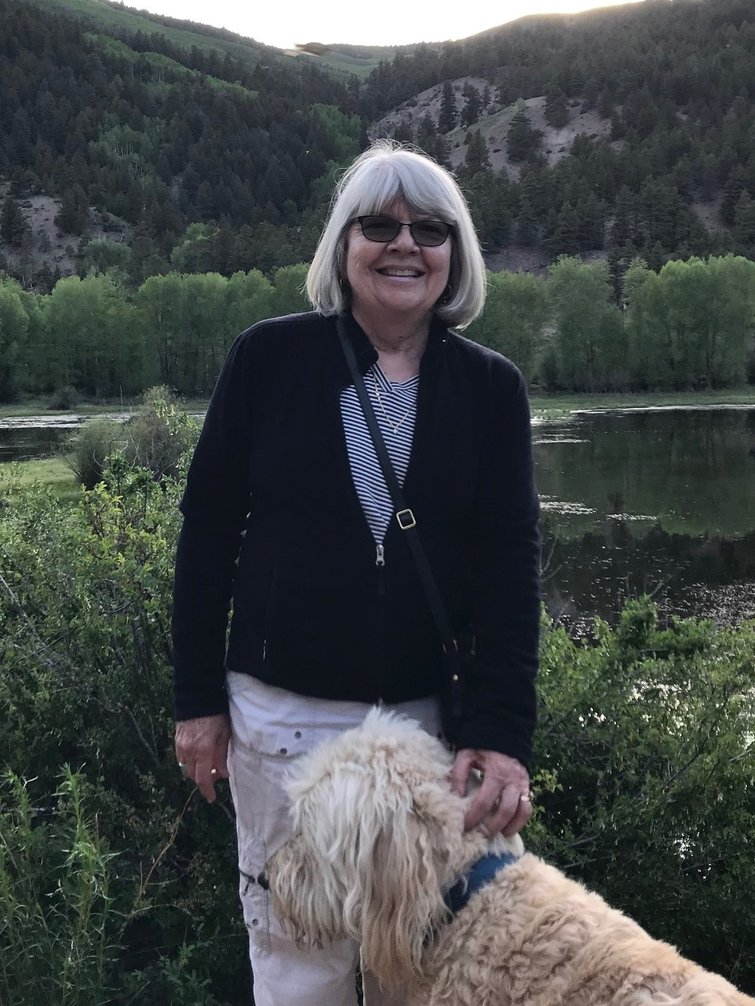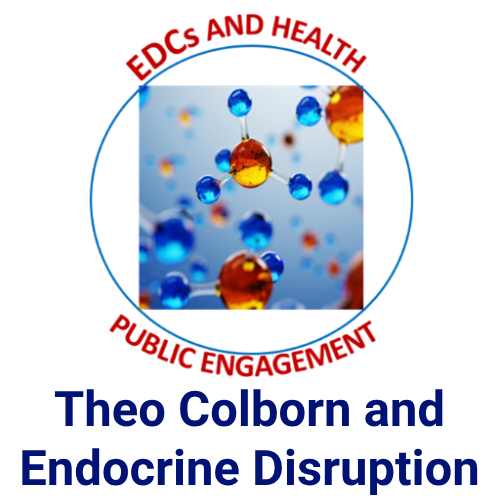Theo Colborn: Uncovering Endocrine Disruption
This project focuses on the life and career of Dr. Theo Colborn (1927-2014). An environmental scientist at the Conservation Foundation and World Wildlife Fund, she discovered in the 1980s that Great Lakes pollution was causing developmental problems in fish, birds, and wildlife. She worked with other scientists to learn that manufactured persistent toxic chemicals—which they labeled “endocrine disrupting chemicals” (EDCs)—including pesticides, PCBs, dioxin, chlordane, plastics like Bisphenol A and phthalates (and now PFAS can be added to the list)—can disrupt normal development by mimicking or blocking the action of estrogen and androgen. While EDCs can cause reproductive and developmental problems in animals (cancer in fish, birds with thin eggshells or crossed beaks, etc.), in humans, they are associated with reproductive disorders, including early puberty and reduced fertility; reduced functioning of the immune system; metabolic disorders, such as obesity and diabetes; and neurodevelopmental disorders, especially attention-deficit/hyperactivity disorder (ADHD).
These findings naturally caused alarm, prompting scientists and government agencies to study endocrine disruption. Theo aimed to alert the public about EDCs. Along with co-authors Pete Myers and Dianne Dumanosky, Theo published Our Stolen Future: Are We Threatening Our Fertility, Intelligence, and Survival? : a Scientific Detective Story in 1996. This book became a best-seller, translated into many languages, and attracted global attention. Articles appeared in popular magazines and newspapers, especially focusing on how EDCs impacted children’s health.
The chemical industry also reacted, worried about the prospect that regulating such lucrative chemicals would greatly reduce their profit. They began a counter-campaign to challenge scientific results and sow doubt among regulatory agencies and the public. Over the years, these tactics have largely succeeded. Scientists continue to broaden our understanding of EDCs, but public attention has waned over the decades. Only recently has the specter of PFAS—so-called “forever chemicals”—in the drinking water and many everyday products begun to hit the news. Few realize, however, that PFAS are endocrine disruptors.
This website is based on research for the book The Modern Rachel Carson: Theo Colborn and Endocrine Disruption, which describes Colborn’s remarkable scientific career and lifelong quest to protect human health. By telling Colborn’s story, this project aims to draw public attention to the problems posed by endocrine disruption. Governments, scientific agencies, and nonprofit organizations worldwide are confronting the critical issues EDCs pose and working to reduce or remove them from products and the market. As Colborn and her co-authors worried years ago, EDCs threaten the future of individuals and the human species.

Marsha L. Richmond: Contributions and Legacy
Marsha L. Richmond received a Ph.D. in the history of biology from Indiana University in 1986. She was an Editor on the Darwin Correspondence Project, Cambridge, England, 1987-1993. She joined the faculty at Wayne State University in Fall 1994, first teaching in the Interdisciplinary Studies Program and then in the Department of History, retiring as Professor Emerita in May 2022. The author of numerous articles on the history of heredity and genetics, cytology, and women in biology, she is finalizing a book on women’s contributions to classical genetics, 1900-1940, and preparing a scientific biography of Theo Colborn, who discovered the phenomenon of endocrine disruption in 1989 while studying the impact of Great Lakes pollution on fish and wildlife. In addition to serving as president of ISHPSSB (the International Society for the History, Philosophy, and Social Studies of Biology), 2017-2019, she was secretary of the History of Science Society, 2010-2016 and Co-Editor in Chief of the Journal of the History of Biology, 2018-2022.
Contact: marsha.richmond@wayne.edu
Supporting Research: NSF and Wayne State
This project has been supported by the National Science Foundation, Scholar’s Award (SES 2121014), and by Wayne State University (Office of the Vice President for Research, the Humanities Center, and the Department of History).

© 2023 Theo Colborn and Endocrine Disruption
